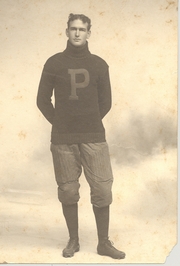
James Naismith was a Canadian-American physical educator, physician, Christian chaplain, and sports coach, best known as the inventor of the game of basketball. After moving to the United States, he wrote the original basketball rule book and founded the University of Kansas basketball program. Naismith lived to see basketball adopted as an Olympic demonstration sport in 1904 and as an official event at the 1936 Summer Olympics in Berlin, as well as the birth of the National Invitation Tournament (1938) and the NCAA Tournament (1939).

Newton is a city in and the county seat of Harvey County, Kansas, United States. As of the 2020 census, the population of the city was 18,602. Newton is located 25 miles (40 km) north of Wichita. The city of North Newton is located immediately north and exists as a separate political entity. Newton is located at the intersection of Interstate 135, U.S. Route 50, and U.S. Route 81 highways.
John Willard Hadl was an American professional football player who was a quarterback in the American Football League (AFL) and National Football League (NFL) for 16 years. He won an AFL championship with the San Diego Chargers in 1963. Hadl was named an AFL All-Star four times and was selected to two Pro Bowls. He was inducted into the Chargers Hall of Fame.
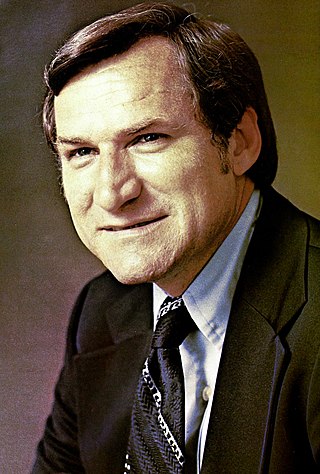
Dean Edwards Smith was an American men's college basketball head coach. Called a "coaching legend" by the Basketball Hall of Fame, he coached for 36 years at the University of North Carolina at Chapel Hill. Smith coached from 1961 to 1997 and retired with 879 victories, which was the NCAA Division I men's basketball record at that time. Smith had the ninth-highest winning percentage of any men's college basketball coach (77.6%). During his tenure as head coach, North Carolina won two national championships and appeared in 11 Final Fours. Smith played college basketball at the University of Kansas, where he won a national championship in 1952 playing for Hall of fame coach Phog Allen.

Allen Fieldhouse is an indoor arena on the University of Kansas (KU) campus in Lawrence, Kansas. It is home of the Kansas Jayhawks men's and women's basketball teams. The arena is named after Phog Allen, a former player and head coach for the Jayhawks whose tenure lasted 39 years. The arena's nickname, The Phog also pays homage to Allen. Allen Fieldhouse is one of college basketball's most historically significant and prestigious buildings. 37 National Collegiate Athletic Association (NCAA) Tournament games have been hosted at the arena. The actual playing surface has been named "James Naismith Court", in honor of basketball's inventor, who established KU's basketball program and served as the Jayhawks' first coach from 1898 to 1907.
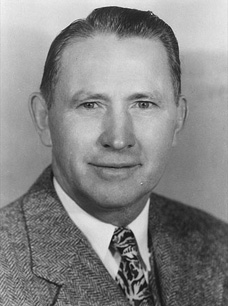
Forrest Clare "Phog" Allen was an American basketball coach. Known as the "Father of Basketball Coaching," he served as the head basketball coach at Baker University (1905–1908), the University of Kansas, Haskell Institute—now Haskell Indian Nations University (1908–1909), and Warrensburg Teachers College—now the University of Central Missouri (1912–1919), compiling a career college basketball record of 746–264. In his 39 seasons at the helm of the Kansas Jayhawks men's basketball program, his teams won 24 conference championships and three national titles.
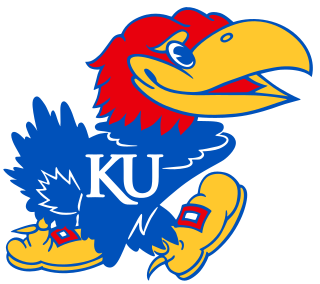
The Kansas Jayhawks, commonly referred to as simply KU or Kansas, are the athletic teams that represent the University of Kansas. KU is one of three schools in the state of Kansas that participate in NCAA Division I. The Jayhawks are also a member of the Big 12 Conference. KU athletic teams have won twelve NCAA Division I championships: four in men's basketball, one in men's cross country, three in men's indoor track and field, three in men's outdoor track and field, and one in women's outdoor track and field. KU basketball also has two Helms Foundation National Titles.

The Kansas Jayhawks men's basketball program is the intercollegiate men's basketball program of the University of Kansas. The program is classified in the NCAA's Division I and the team competes in the Big 12 Conference. Kansas is considered one of the most prestigious college basketball programs in the country with six overall national championships, as well being runner-up six times and having the most conference titles in the nation. Kansas from 2005 through 2018, won 14 consecutive regular season conference championships, an NCAA record. The Jayhawks also own the NCAA record for most consecutive NCAA Tournament appearances with an active streak of 32 consecutive appearances. They were also, along with Dartmouth, the first team to appear in multiple NCAA Tournaments after making their second appearance in the 1942 tournament. The Jayhawks had been ranked in the AP poll for 231 consecutive polls, a streak that had stretched from the poll released on February 2, 2009 poll through the poll released on February 8, 2021, which is the longest streak in AP poll history. Of the 24 seasons the Big 12 conference has been in existence, Kansas has won at least a share of 19 regular-season conference titles.

Ralph H. Miller was an American college basketball coach, a head coach for 38 years at three universities: Wichita, Iowa, and Oregon State. With an overall record of 657–382 (.632), his teams had losing records only three times. Prior to his final season, he was enshrined in the Basketball Hall of Fame on May 3, 1988. Miller played college football and basketball at the University of Kansas. His performance on the football team led to him being drafted in the 1942 NFL Draft, but he chose to serve in the military instead of playing in the NFL.

Homer Woodson "Bill" Hargiss was an American athlete and coach. He played American football and basketball and also competed in track and field events. Additionally, Hargis coached athletics in Kansas and Oregon. As an American football coach during the sport's early years, Hargis was an innovator. He was among few coaches in using the forward pass and the huddle, now staple features of the game.
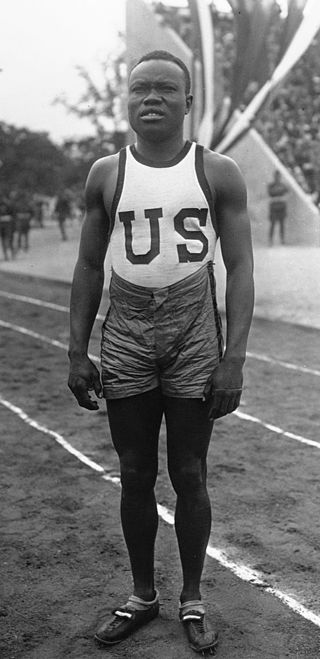
Solomon Wellings “Sol” Butler was a multi-talented athlete who competed in American football and track and field. He finished seventh in the long jump competition at the 1920 Summer Olympics. He also played in the National Football League for the Hammond Pros, Akron Pros, Canton Bulldogs, Buffalo Bisons, and Rock Island Independents. Referenced sometimes as Edward Solomon Butler, was a name used by alternate people to gain notoriety off the exploits of Solomon W. Butler in various parts of the country.
Rich Clarkson is a Denver, Colorado based photographer that has a long history covering American sports. Rich owns a production company, Clarkson Creative, that specializes in photography, video production, design, and book publishing among other things. In addition, his company has organized the top-tier photography educational workshops, Summit Series of Photography Workshops, for over 30 years. The small group also handles all championship photography for the NCAA and Colorado Rockies baseball club.
This timeline of college football in Kansas sets forth notable college football-related events that occurred in the state of Kansas.
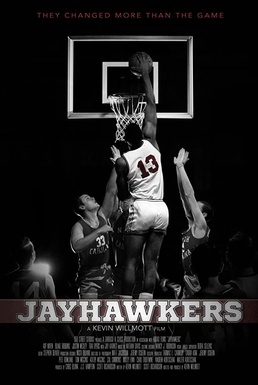
Jayhawkers is a 2014 American sports drama/biographical film directed by Kevin Willmott, following the life of Wilt Chamberlain, Phog Allen, and the 1956–57 Kansas Jayhawks men's basketball team. Former Kansas basketball player Scot Pollard portrays B. H. Born in the film.
John F. Lance was an American football and college basketball coach. He served as the head football coach at Southwestern Oklahoma State University from 1918 to 1921.
The 1954–55 Kansas Jayhawks men's basketball team represented the University of Kansas during the 1954–55 college men's basketball season. The Jayhawks were coached by Phog Allen who in his 36th season of his second tenure, 38th season overall. Kansas played their home games primarily at Hoch Auditorium, however, they did play their first game at Allen Fieldhouse, named after their head coach, on March 1, 1955 against Kansas State. They would play one more game at Allen Fieldhouse that season. The Jayhawks finished 11–10 and failed to qualify for the NCAA tournament.
The 1950–51 Kansas Jayhawks men's basketball team represented the University of Kansas during the 1950–51 college men's basketball season. The Jayhawks were coached by Phog Allen in his 34th year of his second tenure and 36th overall. On December 16, Allen coached against one of his former players, Adolph Rupp, for the first time. Rupp was the coach at Kentucky. The Jayhawks finished the season 8–4 in the Big Seven Conference, finishing 2nd in the conference, and 16–8 overall. They were not selected to the 1951 NCAA Tournament. One notable player on the team was Dean Smith, who would later go on to a Hall of Fame coaching career at North Carolina.
Walter R. Shublom was a former high school, junior college and college basketball coach, and minor league baseball player. He was inducted into the National High School Hall of Fame in 1982.




